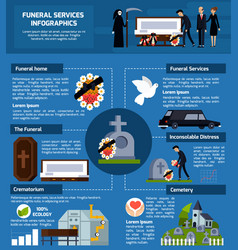Explore The Impressive Progression Of Catholic Schools And Their Substantial Function In Education And Learning-- Do Their Customs Use A Pathway To Future Discovering?
Explore The Impressive Progression Of Catholic Schools And Their Substantial Function In Education And Learning-- Do Their Customs Use A Pathway To Future Discovering?
Blog Article
Produced By-Petersson Nolan
When you consider the background of education, Catholic colleges stick out for their ingrained traditions and enduring influence. https://zenwriting.net/augustus43priscila/the-payment-of-catholic-education-to-the-advancement-of-concern-and-service began as a way to infuse belief and worths, however they have actually adapted incredibly over centuries. Today, they play a critical duty in shaping not just scholastic success however also moral integrity. What's intriguing is exactly how they've handled to flourish among altering cultural landscapes, raising questions about their future relevance and effect.
The Origins of Catholic Education And Learning: A Historic Viewpoint
Catholic education and learning traces its origins back over 1,500 years, when early Christian areas recognized the need for organized understanding. You'll find that these communities aimed to hand down their belief and worths via education.
Monasteries and basilica schools ended up being facilities of discovering, nurturing both spiritual and intellectual development. As you dig deeper, you'll see that the curriculum frequently included ideology, faith, and the liberal arts, developed to form versatile individuals.
Gradually, the Church developed more formal establishments, ensuring that education stayed available to all. The dedication to training moral worths and promoting a feeling of area has actually persisted with the centuries, shaping the instructional landscape and affecting countless lives worldwide.
This enduring legacy continues to inspire Catholic education today.
The Development of Catholic Colleges Through Cultural Contexts
As societies progressed, so did the function of Catholic colleges, adapting to the cultural contexts in which they existed. In the very early years, these establishments focused mainly on spiritual instruction, yet as communities branched out, they started to incorporate regional languages, custom-mades, and instructional demands.
You 'd notice that Catholic institutions usually became facilities for social communication, fostering a sense of belonging among trainees from different backgrounds. In numerous regions, they attended to societal problems, such as hardship and discrimination, by providing accessible education for all.
As you explore different societies, you'll see exactly how Catholic colleges have actually shifted their educational program and mentor methods, showing the values and obstacles of their atmospheres while remaining true to their fundamental goal of faith and scholastic quality.
The Modern Role and Influence of Catholic Schools in Culture
In today's globe, Catholic colleges play an essential role fit not simply the academic landscape, however additionally the wider neighborhood.
You'll find that these organizations stress worths like respect, empathy, and social justice, fostering all-around people who add positively to culture. By focusing on scholastic excellence and moral growth, Catholic schools prepare pupils for future obstacles, nurturing critical thinking and leadership skills.
https://larraine05leroy.wordpress.com/2025/06/14/the-relevance-of-catholic-education-in-fostering-concern-and-service/ serve varied populaces, connecting gaps in access to top quality education. Furthermore, simply click the following website page might observe their dedication to solution, motivating pupils to take part in neighborhood outreach and volunteer job.
This mix of education and learning and moral guidance makes Catholic colleges a substantial force, cultivating liable people who can affect their areas right.
Conclusion
In conclusion, Catholic schools have a rich background that's shaped their enduring impact on culture. You have actually seen exactly how they've adapted to numerous cultural contexts while keeping a dedication to confidence, worths, and scholastic quality. Today, they remain to play a crucial function in cultivating community, promoting social justice, and nurturing accountable residents. As you reflect on their tradition, it's clear that Catholic colleges continue to be an effective force for positive modification in the world.
